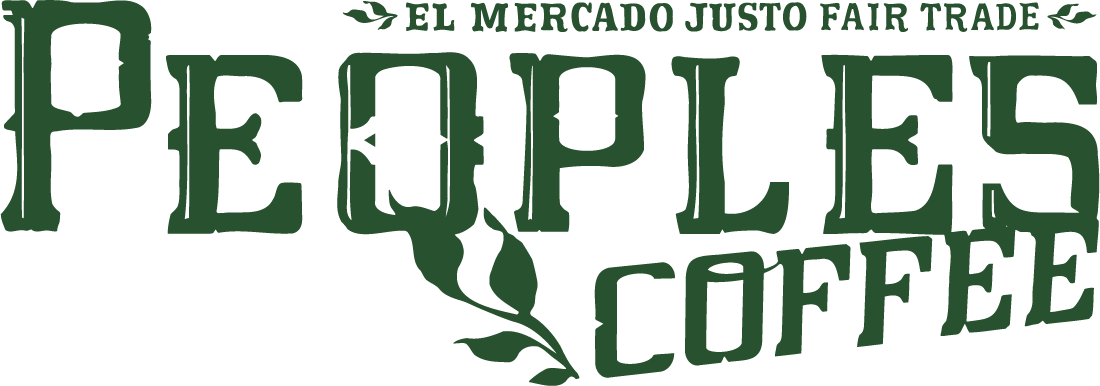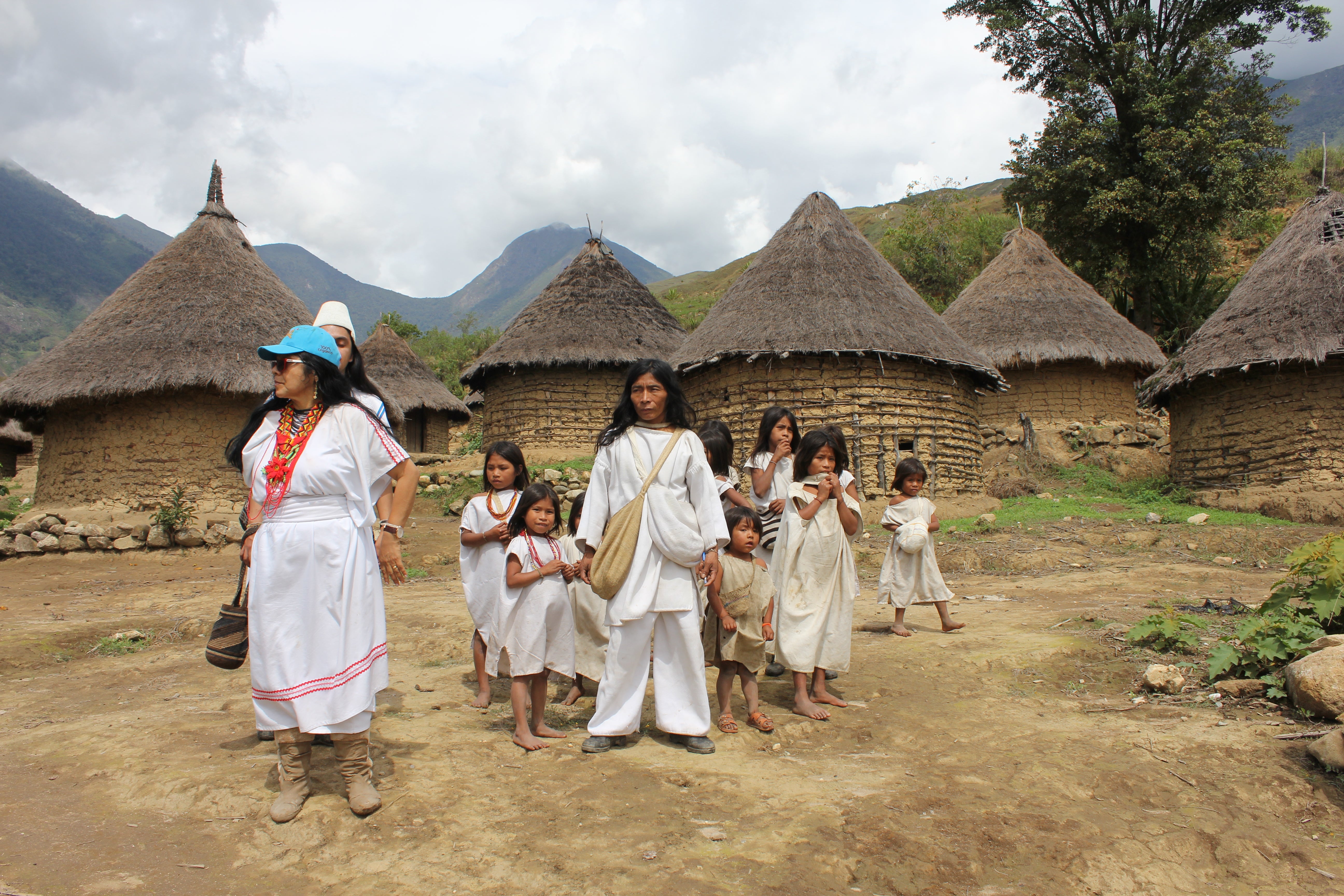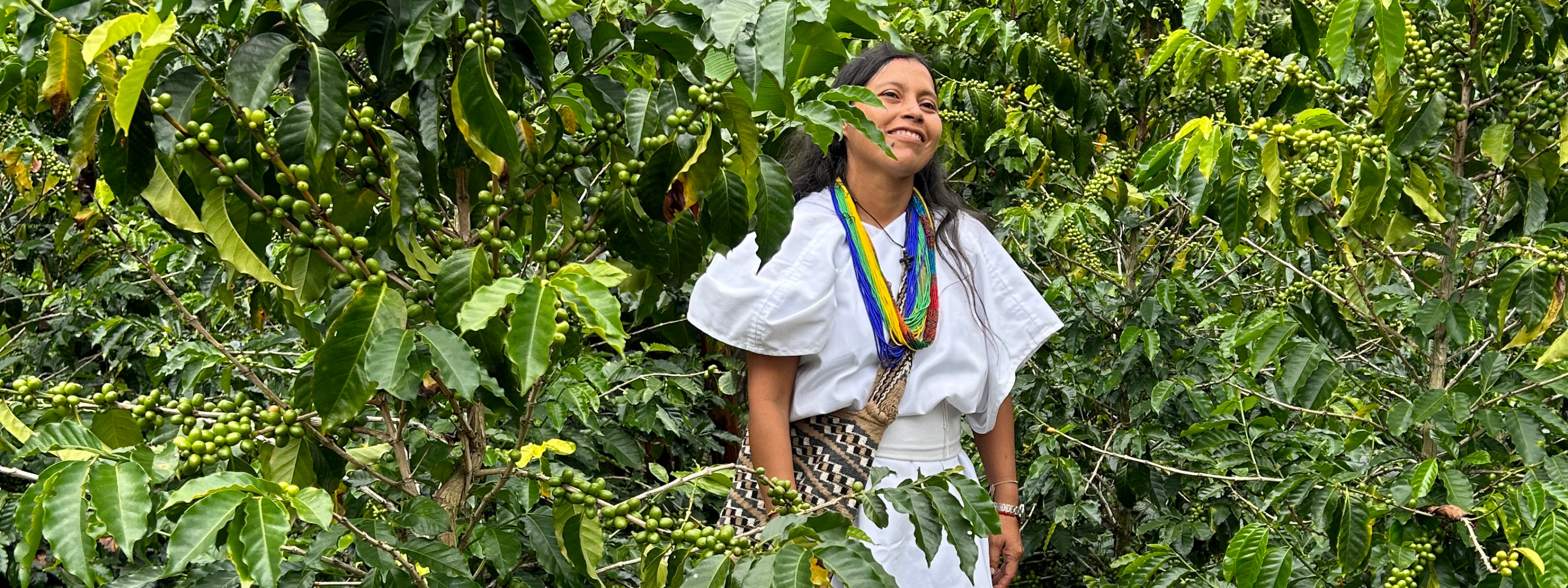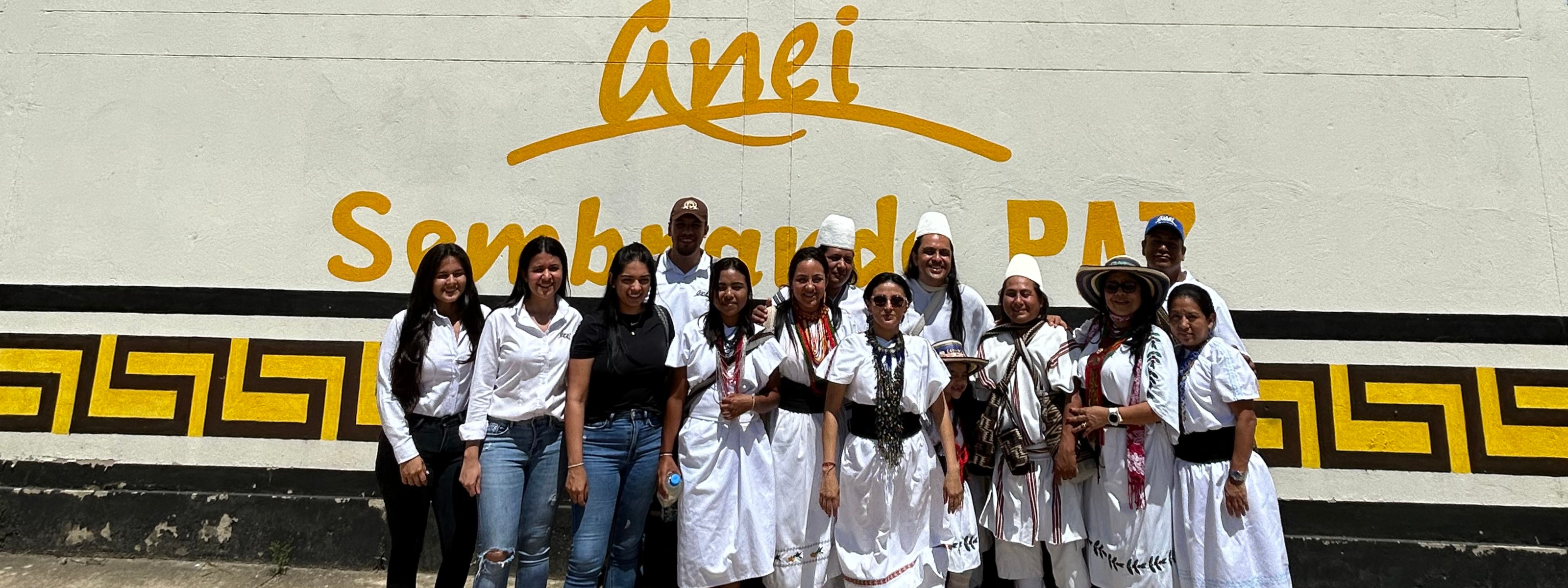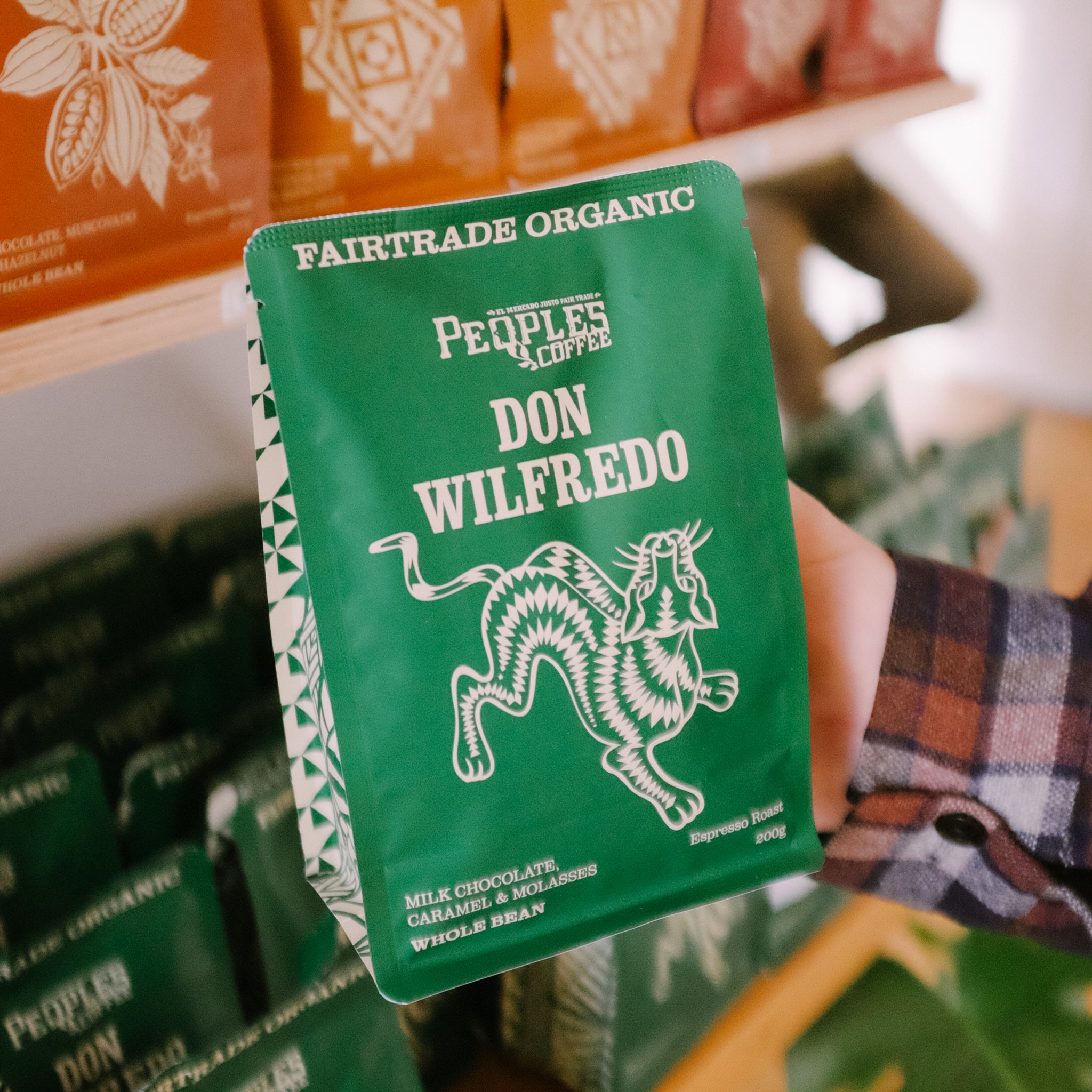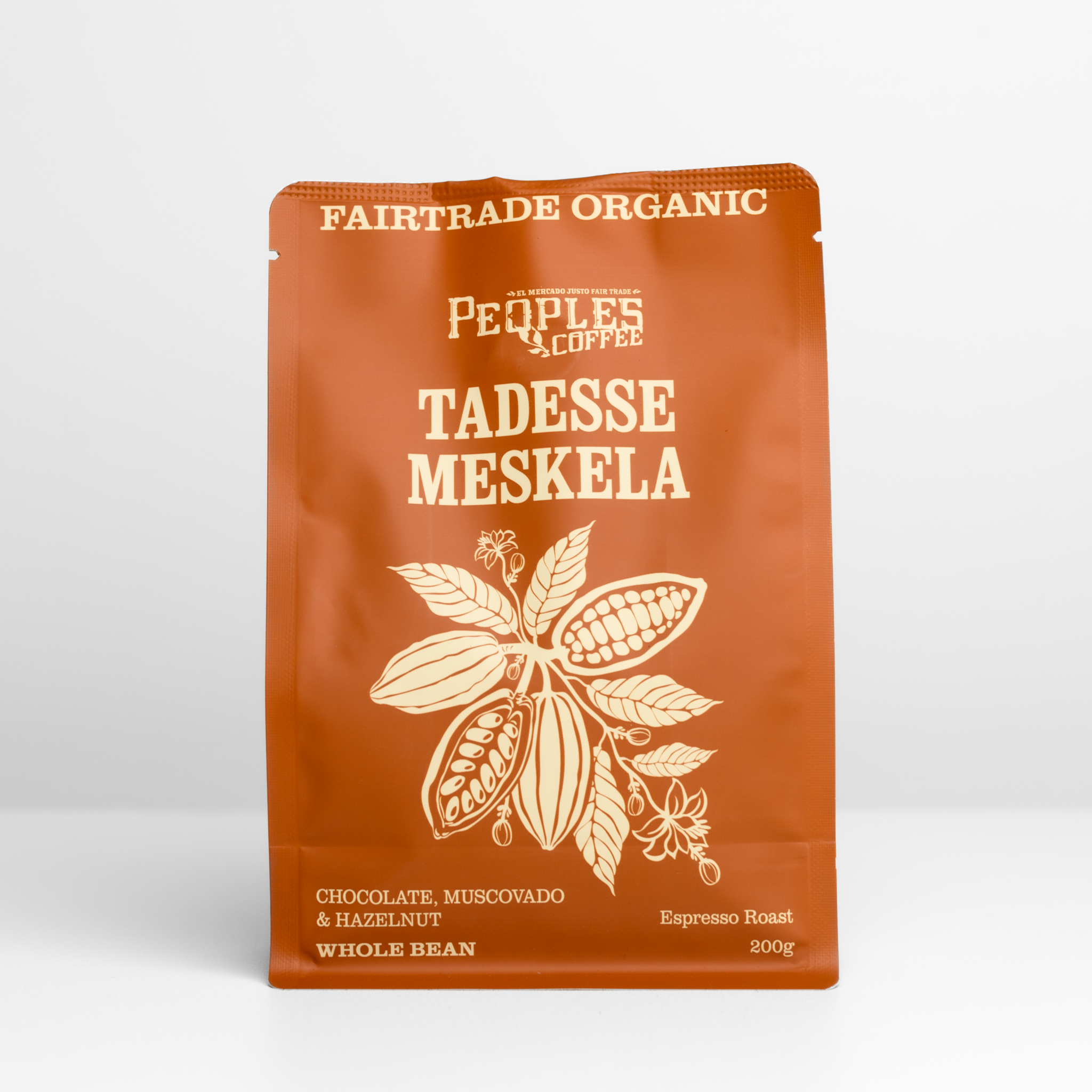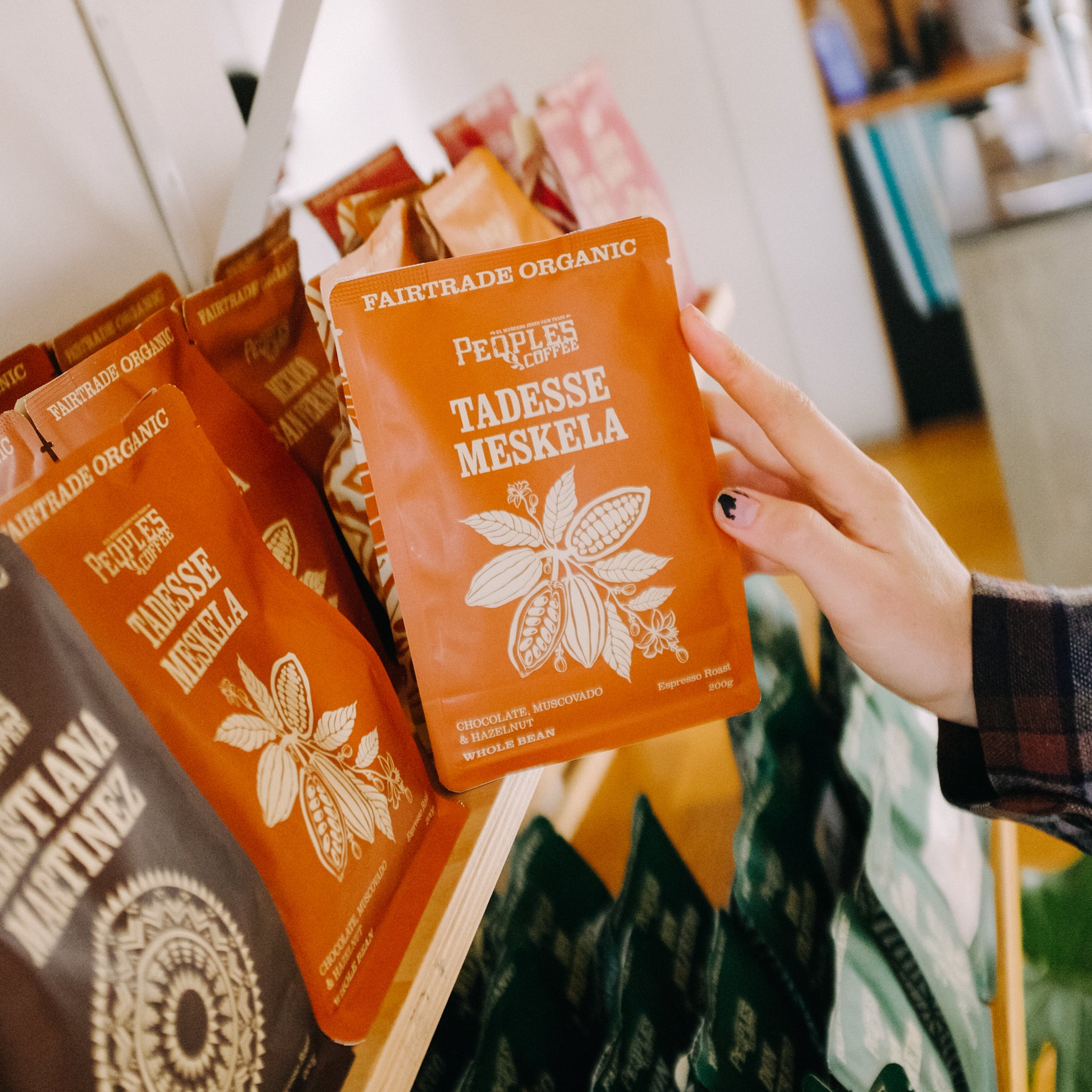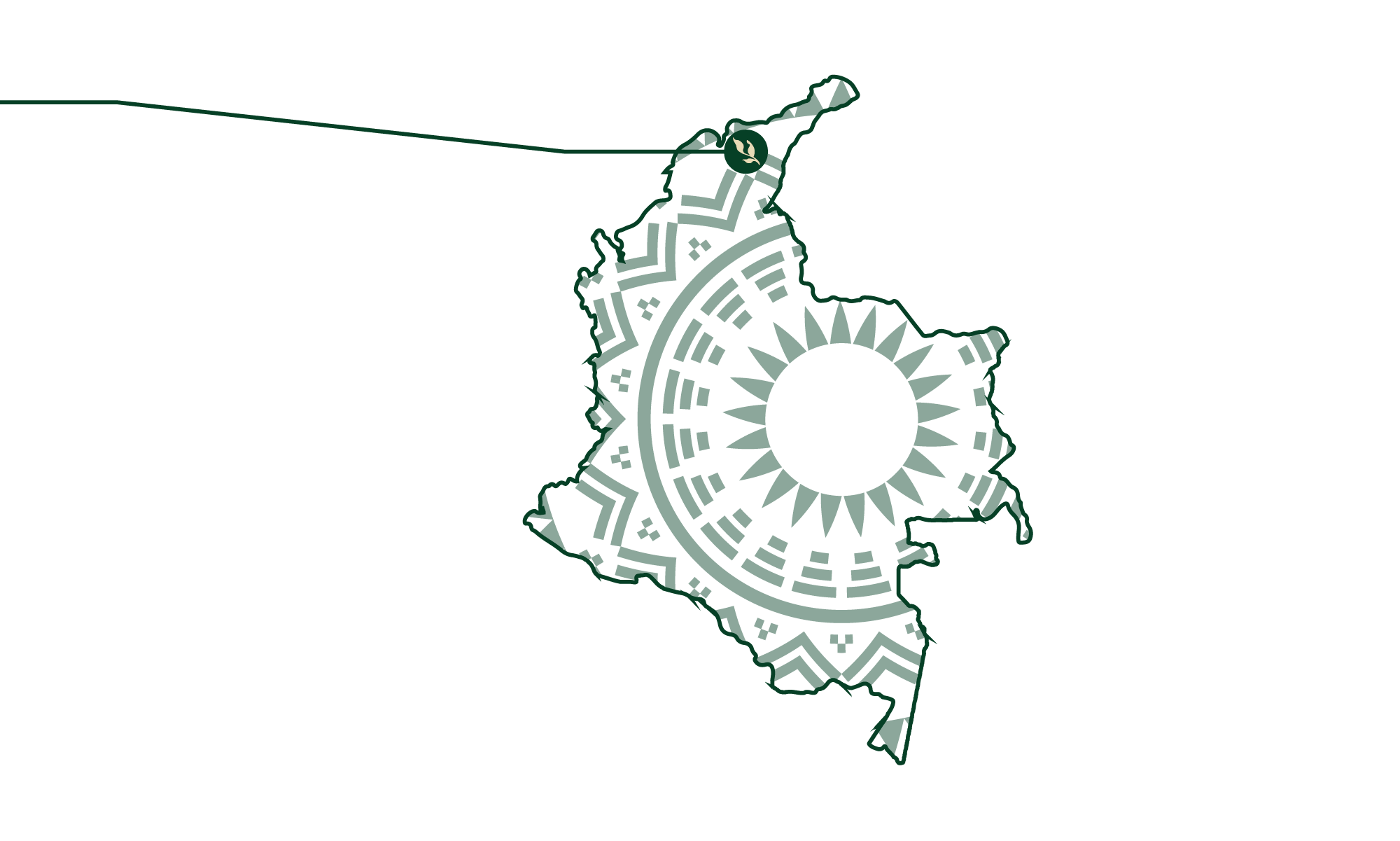
COLOMBIA
COOPERATIVE | ANEI
LOCATION | Sierra Nevada de Santa Marta
MEMBERS | 700+/- Members
MASL | 750 - 1550+/-
The ANEI organic coffee cooperative is an organisation from the Sierra Nevada de Santa Marta and the Serranía del Perijá in Colombia. ANEI is a word in the language of the Arhuaco people, which means ‘good’, ‘positive’ or ‘delicious’. This word was chosen to represent an organisation that aims to rebuild and strengthen indigenous communities, culture, and economic resilience after decades of decline and neglect.
ANEI was founded in 1995 by Aurora Izquierdo, the first native Arhuaca woman from the community of Jewrwa to study in Bogotá, Colombia’s capital, to restructure the region’s economy to support its native and farmer communities.
Through her work in the coffee industry, Izquierdo has helped to implement eco-sustainable programs and projects that have promoted food security among the local communities and strengthened her people’s ability to reclaim their social, economic and cultural rights. In turn, the communities of ANEI can offer high-quality organic coffee to the rest of the world. The production of ANEI’s organic coffee is carried out with an emphasis on harmony between humans and the land, and respect for Mother Earth.
The Sierra Nevada de Santa Maria is home to more than 50,000 inhabitants among four indigenous communities, direct descendants of the ancient Tayrona culture. The landscape is a place of worship - no less worthy of veneration than a temple, church, or mosque. As guardians of the earth, these communities believe they must protect natural resources and show an ecological alternative to industrialized societies. To the indigenous communities of the Sierra, this landscape is the literal, beating heart of the world.
Coffee has been grown in the Sierra for a very long time. Before the formation of the cooperative farmers sold it to street traders or to the FNC (Colombian Coffee Growers Federation) at the standard price. Consequently, the quality – and the return – was often poor. In its drive to increase the value of the crop to its members, the cooperative has focussed on improving the quality of the coffee, gaining organic and fair trade certification and increasing the yield per hectare. The fair trade coffee premium we pay has allowed farmers to make substantial changes to the way they grow and process their coffee, enabling them to purchase better equipment and build better facilities.
Currently, ANEI is working on filling in the final gap in its supply chain, which is the processing of its coffee for export. They realise that without their own mill, they cannot always guarantee the quality of their coffee to their trading partners. They have been looking for a strategically located site near Pueblo Bello to build a dry mill, which will finally bring their organic coffee under their own control from the tree to the shipping container. This will mean that they will be able to put more focus on coffee quality and social improvements which are their core objective.
One of their ongoing goals is increasing their productivity. They believe their farmer training programme has already more than doubled their production to 900kg per hectare. In the future, they aim to double that again. To this end, they now have 25 technical staff at their collection centres and in the field. They have also been attempting to build up a database of available composting materials to build more fertility into their soils.
ANEI is working with a long-term vision; they are using all their available resources to pull their people up and out of poverty. They are working fast to gain their independence, while at the same time, as they say, ‘looking seven generations into the future’.
